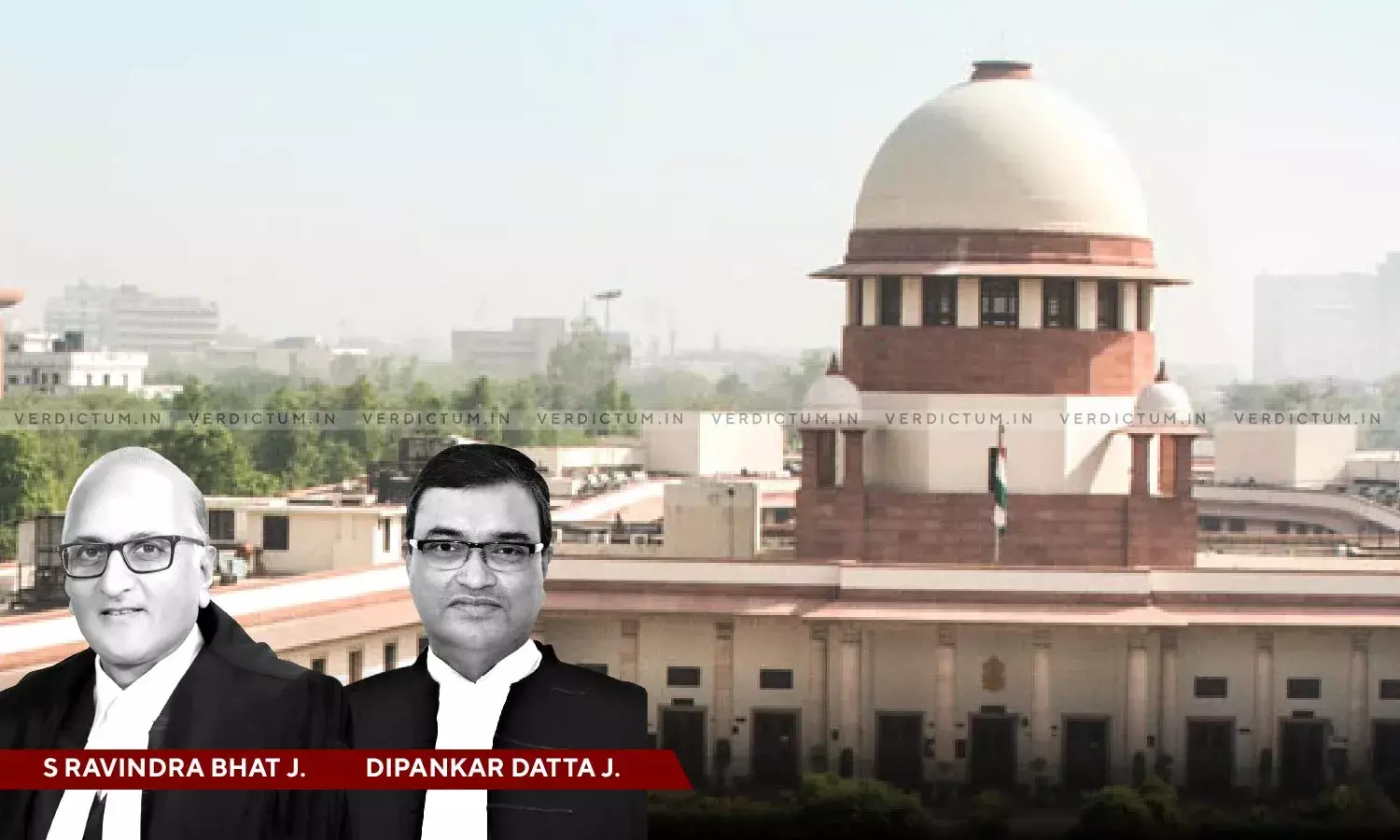Revenue’s Decision In Rejecting Value At Which Goods Were Sold By Treating Assessee As Related Person Was Erroneous: SC

The Supreme Court while dealing with the appeals filed by a company has recently held that the revenue’s decision in rejecting the value at which the goods were sold, by treating the assessee as a related person, was erroneous.
The two-Judge Bench of Justice S. Ravindra Bhat and Justice Dipankar Datta said, “There is no finding that the price of the goods was lower than what was the price of those goods, in the market. … In view of the foregoing discussion, it has to be concluded that the revenue’s decision in rejecting the value at which the goods were sold, by treating the assessee as a related person, was erroneous. For the same reasons, it is held that the impugned order cannot be sustained; it is set aside.”
The Bench set aside the order passed by the Customs, Excise and Service Tax Appellate Tribunal (CESTAT) in this matter.
Senior Advocate V. Shridharan and Advocate Apeksha Mehta represented the appellants while ASG N. Venkataraman and Senior Advocate Arijit Prasad represented the respondents.
In this case, the question which arose for consideration before the Apex Court in the appeals, directed against an order of the CESTAT was whether the price at which the appellant company sold its products to the buyer, should be treated as a transaction with a “related person” under Section 4(4)(c) of the Central Excise Act, 1944.
The Supreme Court in the above context asserted, “… if one were to consider what constitutes inter-relationship, the decision in Supreme Washers Pvt. Ltd. v. Commissioner of Central Excise, Pune, is instructive. The assessee and the buyer were involved in common procurement of raw material; they had common stock accounting and planning and interdependence in manufacturing operations. This court held that holding common stock of raw material and semi-finished goods, with common use of machinery between the three units, with common marketing arrangements and free flow of finance between the three units, cumulatively established the assessees’ inter relationships and interdependence of all three units with each other.”
The Court further observed that the revenue had the materials before it, in the form of documents that indicated the markup towards profit margin, and other objective evidence to compare, if indeed, the cost of the goods sold, was depressed, or were comparable to the market price of the same or similar goods.
“… undoubtedly AgrEvo SA/ Aventis CropScience SA holds the entire shareholding in Aventis CropScience (India) Ltd. (the buyer). It also is a shareholder in BIL. All of the latter’s products are sold to Aventis CropScience (India) Ltd. However, this does not show that BIL has any business interest or interest in the affairs of Aventis CropScience (India) Ltd., nor, conversely, that Aventis CropScience (India) Ltd has any such interest, direct or indirectly in BIL”, noted the Court.
The Court, therefore, said that the revenue’s concern in examining whether the parties were related might be justified; however, it could not have concluded that such a relationship, as is contemplated by Section 4(4)(c) could have been inferred, without applying the proper test.
Accordingly, the Court allowed the appeals and set aside the order of the revenue.
Cause Title- M/s. Bilag Industries P. Ltd. & Anr. v. Commr. of Cen. Exc. Daman & Anr.


